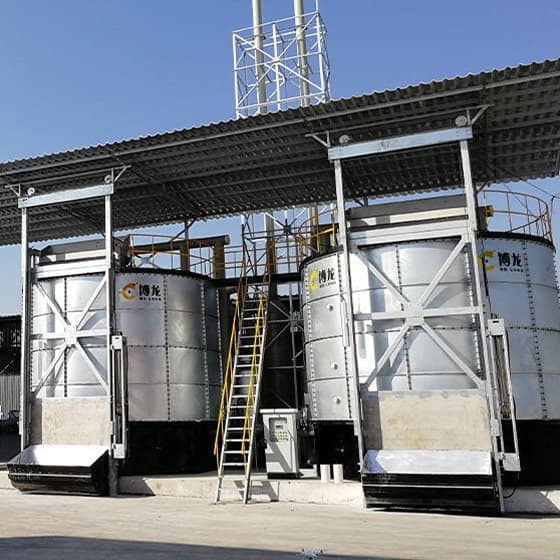Fermentation tanks play a crucial role in the circular economy by transforming
organic waste into valuable resources. This process supports sustainability by reducing waste, conserving resources, and promoting environmental health.

The circular economy aims to minimize waste and make the most of available resources. It emphasizes the reuse, recycling, and recovery of materials, reducing the need for new inputs and mitigating environmental impact.
Fermentation tanks convert organic waste from various sources—such as livestock manure, food waste, and urban sludge—into nutrient-rich compost. This compost can be used to enhance soil fertility, closing the loop in agricultural and urban ecosystems.
Using fermentation tanks reduces the volume of waste sent to landfills, lowers greenhouse gas emissions, and produces high-quality compost that can replace chemical fertilizers. This not only supports environmental sustainability but also offers economic savings for farmers and municipalities.

Fermentation tanks are essential for advancing the circular economy. By converting organic waste into valuable resources, they support sustainable waste management and resource conservation.